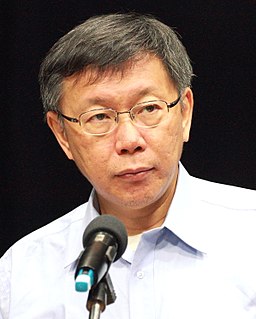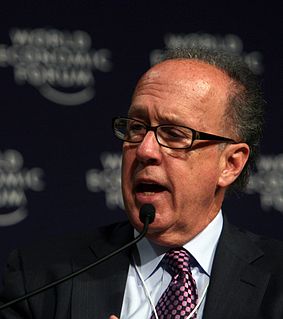A Quote by Jose Angel Gurria
If we can rid the world of financial centres that thrive on lack of transparency, non-cooperation, and weak regulation, an important step towards a fairer and cleaner world economy will have been achieved.
Related Quotes
In a globally interdependent world, a better financial and investment system cannot be achieved on a country-by-country basis. There may be no one-size-fits-all model for economic development, but without global standards and complementary regulations, the long-term outlook for the world economy will remain bleak.
The math you need for most of finance is ninth-grade algebra, and most people feel reasonably comfortable with that. But I think the financial world there has been - I don't know if it's by design, or this is how it's evolved - there are bad actors who have wanted to obfuscate because you can benefit from the lack of transparency.
Our economy will not prosper as long as it is monopolised (by the government). The economy must be rid of monopoly and see competition, it must be freed of insider speculation, be transparent, all people must be aware of the statistics. If we can bring transparency to our economy, we can fight corruption.
If we suppose a sufficient righteousness and intelligence in men to produce presently, from the tremendous lessons of history, an effective will for a world peace - that is to say, an effective will for a world law under a world government - for in no other fashion is a secure world peace conceivable - in what manner may we expect things to move towards this end? . . . It is an educational task, and its very essence is to bring to the minds of all men everywhere, as a necessary basis for world cooperation, a new telling and interpretation, a common interpretation, of history.
We now know that climate action does not require economic sacrifice. This is fully in line with the World Bank Group's findings. It is up to all of us to make smart policy choices that will help combat climate change. For example, putting a price on carbon is a necessary step and could drive resources and investments to a cleaner economy.
Financial literacy is not an end in itself, but a step-by-step process. It begins in childhood and continues throughout a person's life all the way to retirement. Instilling the financial-literacy message in children is especially important, because they will carry it for the rest of their lives. The results of the survey are very encouraging, and we want to do our part to make sure all children develop and strengthen their financial-literacy skills.



































